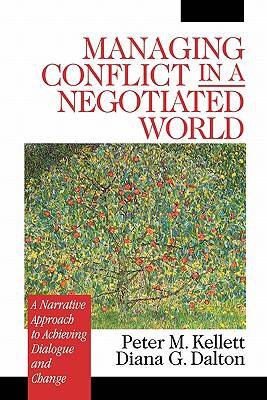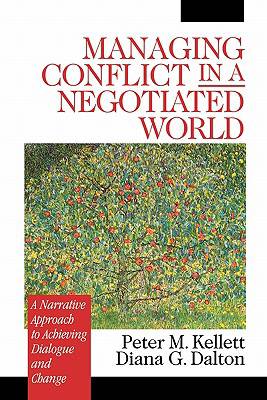
- Afhalen na 1 uur in een winkel met voorraad
- Gratis thuislevering in België vanaf € 30
- Ruim aanbod met 7 miljoen producten
- Afhalen na 1 uur in een winkel met voorraad
- Gratis thuislevering in België vanaf € 30
- Ruim aanbod met 7 miljoen producten
Zoeken
Managing Conflict in a Negotiated World
A Narrative Approach to Achieving Productive Dialogue and Change
Peter M Kellett, Diana G Dalton
Paperback | Engels
€ 253,45
+ 506 punten
Uitvoering
Omschrijving
Peter Kellett and Diana Dalton set out in this text to address the question: How do people manage conflict effectively? This is a simple question with an elusive and complex answer. To determine how to manage conflict one must first understand the meaning of conflict for those engaged in it. The authors do this by presenting a step-by-step guide to describing, interpreting, understanding and managing conflict. Using real life narratives, they explain how and why conflict occurs and strategies that one can deploy to manage the conflict. These interpretive and dialogic skills are illustrated clearly through the pairing of personal narratives with relevant discussion questions and challenging exercises. The first part of the book aims to equip readers with the ability to collect, analyze, and learn from conflicts from the perspective of developing more dialogic relationships. The second part enables the reader to apply this interpretive process to several communication contexts. With their thorough coverage of conflict management issues and their engaging writing style, Peter Kellett and Diana Dalton compel readers to examine their own conflicts for opportunities to learn, grow, communicate and change.
Specificaties
Betrokkenen
- Auteur(s):
- Uitgeverij:
Inhoud
- Aantal bladzijden:
- 216
- Taal:
- Engels
Eigenschappen
- Productcode (EAN):
- 9780761918899
- Verschijningsdatum:
- 1/03/2001
- Uitvoering:
- Paperback
- Formaat:
- Trade paperback (VS)
- Afmetingen:
- 155 mm x 229 mm
- Gewicht:
- 294 g

Alleen bij Standaard Boekhandel
+ 506 punten op je klantenkaart van Standaard Boekhandel
Beoordelingen
We publiceren alleen reviews die voldoen aan de voorwaarden voor reviews. Bekijk onze voorwaarden voor reviews.











